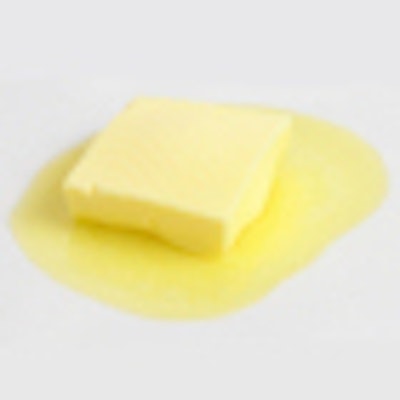
Could filling up on saturated fatty acids (SFA) be bad not only for your body but your teeth as well? The authors of a study in the Journal of Dental Research (July 2011, Vol. 90:7, pp. 861-867) suggest it could be.
"Saturated fatty acids produce an inflammatory response," the authors wrote. "Hyperinflammation is now recognized as one of the key underlying etiologic factors in periodontal disease."
A high intake of SFA -- typically found in meat fats, milk fat, butter, lard, and certain oils -- is associated with nearly double the rate of periodontal disease compared with a lower SFA intake, particularly in nonsmokers, they noted. However, smokers seemed to be immune to the deleterious effects of saturated fatty acids on their dentition.
The Japanese team pored over dietary and dental data from the longitudinal Niigata study, focusing on 264 individuals who were 75 years old in 2003-2004. They found nonsmokers with a high intake of SFA had an adjusted relative risk of 1.92 of having periodontal disease compared with people with low SFA intake.
Masanori Iwasaki, DDS, PhD, of the department of oral health science at Niigata University, and her team analyzed participants in the Niigata study who were 70 years old when the study was started in 1998. They divided the 138 nonsmokers (most of whom were women) and 126 smokers (most of whom were men) in the cohort into quartiles, from lowest to highest SFA intake.
They then performed regression analyses that allowed them to drill down to the differential rates of periodontal disease in each subgroup while controlling for gender, lower income, lower education, body mass index, use of devices for interdental cleaning, and frequency of visits to a dentist.
Among nonsmokers with the highest level of SFA intake, the researchers found an adjusted relative risk of 1.92 for periodontal disease events compared with nonsmokers with the lowest SFA intake (p < 0.05). In contrast, among smokers the adjusted relative risk was a nonstatistically significant 1.05 for those at the highest versus the lowest SFA intake level.
The investigators also calculated that the risk for overall periodontal attachment loss was fully 3.14 for nonsmokers at the highest SFA level compared with nonsmokers at the lowest SFA level. The respective risk for smokers was a nonstatistically significant 0.54.
These findings suggest that patients may benefit from having a lower SFA intake, the researchers concluded.
"This is true among nonsmokers; while the message dental professionals always have for smokers it that they have to quit smoking if they are concerned about their oral and systemic health," Dr. Iwasaki told DrBicuspid.com.
However, while people may want to cut down on SFA intake for a number of reasons, noted Gregori Kurtzman, DDS, a general practitioner in Silver Spring, MD, this study doesn't convince him there's a link to periodontal disease.
"In a study of this type, a group would need to be monitored over a longer period of time -- say, five to 10 years -- with their periodontal health, diet, and other factors being recorded," Dr. Kurtzman told DrBicuspid.com. "Then one may be able to deduce that factors such as smoking and a diet high in fatty acids have an influence on periodontal health."
Moreover, he added, "I am unsure why the researchers focused on such a narrow age range, when using a much broader range of patient ages would have provided more relevant statistics."
The investigators admit in their report that restricting their study subjects to only those ages 75 or 76 makes it difficult to extrapolate the findings to older or younger people. However, they suggest that limiting the study period to one year may have led to an underestimation of the effect of higher SFA intake on the development of periodontal disease.



















